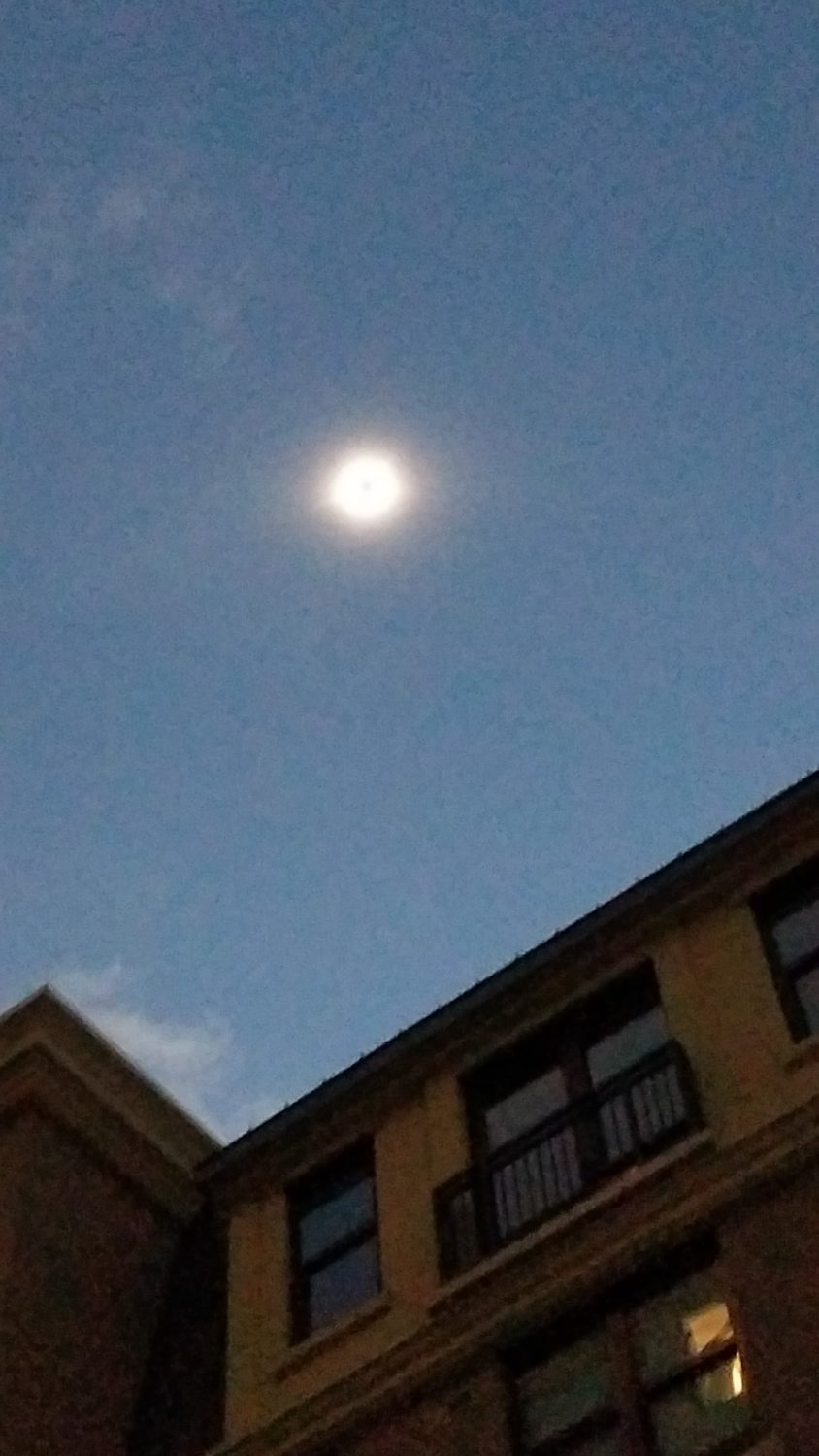If you don’t know yet, there will be a new moon solar eclipse on Christmas Day in 2019. You won’t be able to see it in the US, like the total solar eclipse in 2017, but it will have a lot of impact for your future.
That’s according to astrology.
As some of you may know, I do some light editing with Susan Miller, a world-renowned astrologer and founder of Astrology Zone, as well as an amazing person I’ve known for almost a decade. The New York Times did an excellent profile piece on her, and you can read it here.
A lot of people ask me about eclipses. I’m definitely the wrong person to ask since I don’t write horoscopes, but I did research into eclipses to give you a better idea of what they are and how they shape us.
Eclipses are more powerful than a full moon (lunatic)
In 1935’s Werewolf of London, the first mainstream Hollywood film featuring a werewolf, wealthy botanist Wilfred Glendon transforms into a wolf during a full moon, forever bringing this powerful connection to pop culture.
While werewolves were not associated with full moons in early legends, humans impacted strangely by the full moon have been identified for centuries. In fact, the full moon spurred the word lunatic, first appeared in late 13th century as “affected with periodic insanity dependent on the changes of the moon.”
A full moon (when the moon is entirely illuminated) has since spawned several myths, including making people go crazy or being “moonstruck” by love, though it has a different interpretation in astrology, the study of planetary movements that have influence on individuals (and a subject that was once part of astronomy until it became a whole field of its own). In astrology, full moons indicate new beginnings for positive transformation and fulfillment.
However, when it comes to major life events (and legitimate scientific studies), it’s the eclipse you should really pay attention to.

Eclipses pre-date civilization
According to NASA, an eclipse takes place when one heavenly body moves into the shadow of another heavenly body. From our planet, there is an eclipse of the moon (lunar eclipse), when Earth moves between the sun and the moon, blocking sunlight, and an eclipse of the sun (solar eclipse), when the moon moves between the sun and Earth.
Scientifically, NASA uses eclipses to study the sun’s corona, the moon’s surface and solar weather. Lasting up to eight minutes, eclipses are captivating, visual events, and many people trek the globe for the perfect eclipse sighting in places known for sky clarity. More powerful than the full moon, eclipses have been occurring in our celestial sphere even before civilization existed.
The first mention of an eclipse was found in Zhou-Shu, a Chinese book of the Zhou Dynasty on January 29 1137 BC (the book was discovered in 280 AD). In ancient cultures, eclipses were associated as a disruption in the order of the heavens and generally had negative connotations. Ancient Egyptians observed eclipse cycles some 4,500 years ago, and Greek astrologers were fascinated with the eclipse relationship among the moon, earth and sun.
Eclipses were an exciting activity of study in the Middle Ages in Western Europe, and they became important during the 17th, 18th and 19th centuries, both religiously and scientifically. At the time, astronomy in general was having a breakthrough thanks to the invention of the telescope in 1608, and new planets like Uranus (discovered in March 1781) and Neptune (September 1846) were recognized.
In the latter half of the 20th century, eclipses became major subjects in paintings and poetry, often left for interpretation. A marvel to the naked eye, an eclipse (like the full moon) had a type of mystery surrounding it, and major worldwide events happened on or around an eclipse. Helium was discovered, Albert Einstein’s General Theory of Relatively was first observed and Princess Diana separated, gave birth to William and died on eclipse days. It’s true and fascinating.
What eclipses mean for you in astrological terms
But eclipses take on a more interpretive role from an astrological perspective. In astrology, eclipses serve as a tool in determining outcomes and experiencing significant life moments. A solar eclipse falls on a new moon and indicates crucial, new beginnings, while a lunar eclipse, which falls on a full moon, will end or wrap up something particularly important. Eclipses change our perception of time, and speed up life timetables.

“Eclipses are full moons on steroids,” says Susan Miller, whose popular Astrology Zone website garners more than 100 million page views a year. “The universe is testing us constantly. That’s the bottom line.”
According to Susan, eclipses come in pairs every five and a half months and bring circumstances to the surface. Among top astrologers in the field, Susan believes it’s what the universe wants. “Eclipses are very dramatic. They bring life events. They bring moments that we always remember. The universe is set up on cycles and it wants us to live a clean, ethical productive life. They test our commitment to a relationship, to our country, to something. Astrologers can see all the math that forms the underpinnings of our universe. The exact sign, degree and date of the eclipse repeat every 19 years.”
For example, an eclipse on February 26, 2017 will be in Pisces. Looking back 19 years, one occurred on February 26, 1998 as well, in the same sign and degree (Pisces, 8 degrees). Eclipses usually center on pivotal life moments that we long remember. An eclipse will affect you more if it falls on a degree of your sun, natal moon or natal planet in your birth horoscope.
“Let’s say you walk across a rickety bridge,” says Susan. “The minute you get on solid ground, the bridge falls into the ravine. There is no way back. You must go forward. That is the universe telling you to move forward. That is an eclipse.”
Susan provides a list of eclipses that date back to the 1990s so readers can determine what significant event in their life occurred during a specific eclipse calendar date. Eclipses are also known to produce forms of revelation. “You get a lot of truth during an eclipse. Some times the truth is really tough, like hearing about a diagnosis or finding out the man or woman you are dating is unfaithful, or creative projects you worked on.”
No matter the type of significant moment, it is usually not expected. “Eclipses are usually a surprise. They are the most dramatic aspect we have in astrology. They come out of left field.” In astrology, it’s also known a man will be get eclipsed out of your life during a solar eclipse, or a woman during a lunar eclipse.
While many skeptics might question the interpretive role of an eclipse in our lives, it’s not unwarranted. “We only know five percent of the universe,” Susan says. “This is fascinating.”
Susan refers to Fabiola Gianotti, a physicist that appeared on a segment from CBS 60 Minutes, which explored the Large Hadron Collider, an $8 billion project that 10,000 scientists around the world collaborate on to search new breakthroughs in the universe. “When we look at the universe, what we see by eye or with our telescopes is only five percent of the universe,” Fabiola says on the show. “The rest, 95 percent is dark. Dark meaning, first of all, not visible to our instrument. Second, dark also indicates our ignorance. We don’t know what’s the composition of this part of the universe.”
Some of the links in this post are affiliate links. If you click on the link and purchase the item, I will receive an affiliate commission. Please do! I’m a one-man team for this website, so any help is sincerely appreciated.
Travelbinger is now on YouTube! Subscribe here for exclusive travel tips and advice from founder Jimmy Im.
We’re also on Twitter, Facebook and Instagram.
Happy travels!
Jimmy Im has traveled to 113 countries, stayed in over 600 hotels and has flown a million airmiles. He lives in New York City.


Here are three tips for a solar eclipse:
– Start learning something new.
solar eclipse – even if it is a partial solar eclipse, it is a symbol of new beginnings.
– Tune in to success.
During the eclipse season, you can predict your near future that you would like to see in your life. During a solar eclipse, these desires are embedded in your subconscious, and it will be easier to fulfill.
– Spend time with your family.
Sorry, there was an error with your submission. Please make sure all required fields have been completed and try again.